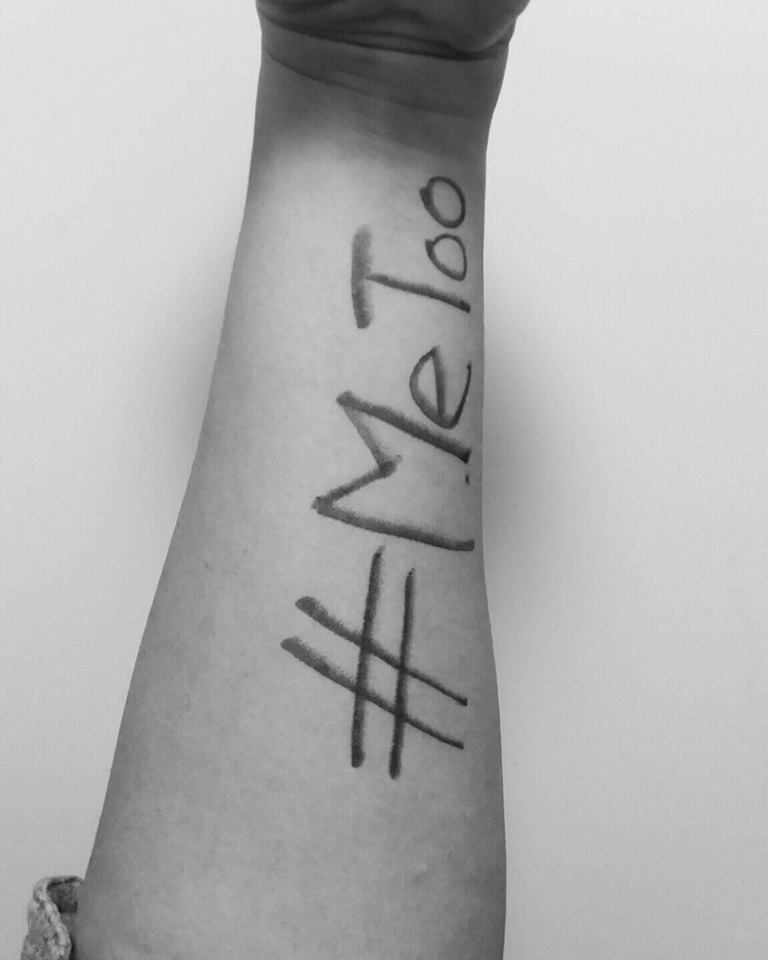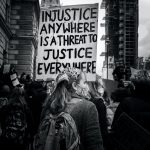The #MeToo movement shook the world in 2017, countless women across the globe shared their stories of abuse. The same thing happened in Bangladesh. Some powerful women I knew shared their stories of abuse. However, the wave seemed to fade out after a while.
In 2018, #MeToo began in our neighboring country India. The movement became a topic of discussion in cyberspace among Bangladeshis as well. Perhaps many like myself wondered what would happen if women in Bangladesh started speaking up and calling out their abusers? On a personal level, this movement made me recall my own stories of abuse and reflect on why I could not stand up for myself. The society I grew up in expects women to be submissive and abuses apparently never happened to ‘good girls’. This image is almost a prerequisite to survive in a patriarchal society where it takes so little to lose and damage it.
Just one accusing finger pointing at your ‘character’ and its gone! You are now evil.
I lived with my family as a teenager and yet, this is where I felt most vulnerable and afraid to speak up. It was so difficult and traumatizing, and I did not know whom to ask for help. I learned to be self-assertive only when I moved abroad to pursue higher studies and this period allowed me to reflect upon my own individual agency. I always hoped that someday I could speak up about the abuse I had gone through. That someday, I would tell what a perverted monster that man was and that he took advantage of his relationship to my family so that he could harass me. I will never forgot the image of my younger-self, a girl who was vulnerable and cried with her face buried under the pillow.
Then in October last year, I came across the story of Prioty, a Bangladeshi woman based in Ireland who is a model and a pilot. She shared her story of abuse which happened to her a couple of years ago when she went to Bangladesh. Her abuser was a wealthy, powerful man. By sharing her story, she ignited a spark within me and almost a decade later – I told myself that enough is enough.
No matter what the consequences may be, I have to let go of this burden that I have been carrying in my heart. So I posted on Facebook.
In one day, my story went viral. However, there was silence from the media, which was surprising considering that my abuser is a well known journalist. While in another country, the news was shared much faster and it took awhile for the Bangladeshi media to wake up. It would be days later before mainstream media in Bangladesh to acknowledge and cover the movement that was happening on their own doorstep. Several more women began to speak up and eventually events were organised to express solidarity with the #MeToo movement.
However, the level of trolling and shaming that women faced is not only outrageous, but also heartbreaking. So-called ‘feminist commentators’ tried to disregard the movement by calling it an attempt to seek attention. In my case, my abuser denied the allegations and his allies tried to shame me and my mother as my abuser was in a relationship with her. They tried to divert the attention from his heinous acts to the fact that my mother, a divorced woman with children had a non-marital relationship.
In our society, divorced women are stigmatised and he and his supporters tried their best to use that to their advantage. Having grown up in this country, I guessed that this would happen.
However, what I did not expect and what really broke my heart was the resistance expressed by several feminist commentators who claim that they write for the well-being of women, and that they are passionate about women’s rights. One so called feminist wrote that the #MeToo movement is not compatible in our societal context! Some people refused to believe me because it happened more than 11 years ago and they wanted evidence. I did not have evidence; if I had, he would not have tried to abuse me on so many occasions. If I did have evidence, would it have really mattered? I don’t think so.
What I learned, from being trolled, slut shamed and refused to be believed in, is that the path to opening up is not easy for Bangladeshi women. If one chooses to call out her abuser, she needs to be mentally prepared for the trolling, character assassination, threats, rumors and perhaps even the lack of support from people close to her.
On a global level, the #MeToo movement still has a long way to go and it is all the more difficult in a country like Bangladesh where there is a complicated nexus of gender, political affiliation, wealth and other factors. It takes so little to dehumanize a survivor, with men and women equally participating in upholding the patriarchy. I honestly acknowledge my privilege of being situated in Europe, that it made it easier for me to break the silence. I salute those brave souls who are currently in Bangladesh and took the bold step of calling out their abusers. Being a Bangladeshi woman myself, I know how difficult it is.
So on a concluding note, my hope is that the movement does not become diminished by political influences of the perpetrators or the social pressures some of the survivors may be facing. I still hope that someday, our stories will matter and that they will encourage women to not suffer in silence and receive the support they may need when they stand up for themselves.



![Lithuania’s Female President: The Baltic ‘Iron Lady’ – ,,Geležinė ledi’’ – pirmoji Lietuvos prezidentė Dalia Grybauskaitė [EN/LT]](https://www.youngfeminist.eu/wp-content/uploads/2016/02/DaliaGrybauskaite-150x150.jpg)

Average Rating